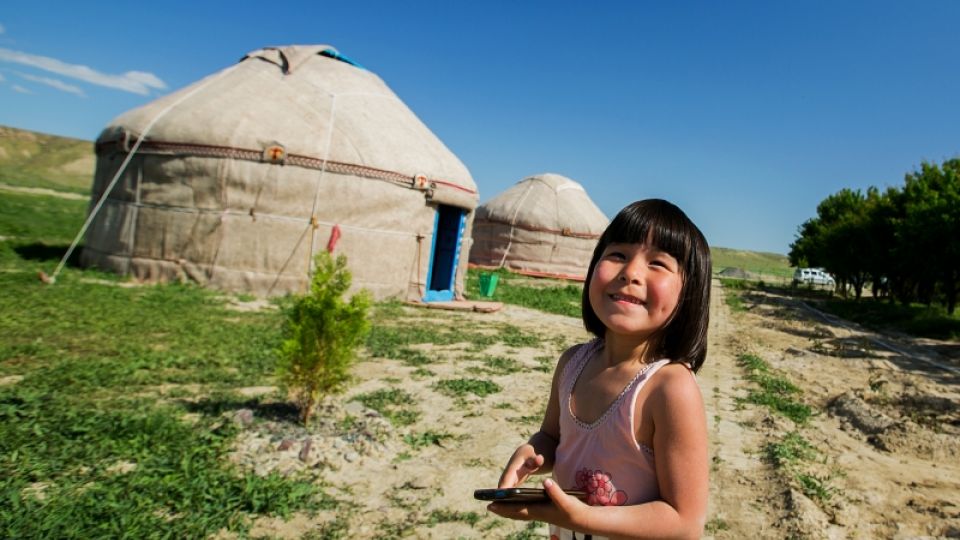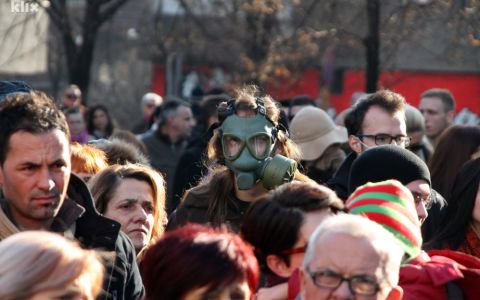Thousands citizens of the Mangystau Region can feel an improvement in their environment thanks to a three year project of non-governmental organizations financed by the EU (1). The project contributed to an improvement of legislative framework, provided new scientific data on pollution, and supported local communities in their struggle for a better future. The developed information tools and successful campaigns can inspire other citizens and state authorities – they can be found at http://ecocitizens.kz.
“During the last three years, we can observe significant increase of the citizens’ interest in environmental issues, and also, the state authorities pay more attention to this topic,” says the project coordinator from the Czech non-governmental organization Arnika, Martin Skalsky. “Although a lot of expert work has been done, we are especially proud to be able to help the local communities to solve their particular problems,” Skalsky adds.
There are several such cases in Mangystau. Aktau municipal waste landfill, which was operated for years without a valid permit and bothered thousands of people with dust and fires, has been closed down. An illegal waste dump at Akshukur has been partly cleaned-up. In Kuryk, a broken sewer that was flooding the local school yard has been repaired. The company Uralenergostroy, which was illegally dumping oil sludge in a steppe, was ordered by the court to pay a 671 million tenge fine. Green oases Saura and Akmyshtau were equipped with waste containers and fenced in to be protected from domestic animals (2).
The project also supported two large public interest campaigns in other regions. In Almaty, “Save Kok-Jailau” campaign activists succeeded in temporarily stopping the construction of a ski resort on lands that originally belonged to Ile-Alatau National Park which is an important habitat of many rare species including snow leopard (3). In Pavlodar, the capital of the region with the largest quantity of the pollutants emitted into the air by industry, a project to build a hazardous waste incinerator was cancelled after 100 thousand citizens raised their voice and signed a petition against it (4).
“The project connected civic organizations throughout Kazakhstan and enabled a transfer of knowledge. Although our mentality prefers sweeping the problems under the carpet, a sustainable future is not viable without access to information, a broader involvement of the public in the decision-making process, and open space for the discussion of important issues. Another few steps forward have been made,” says Anna Andreichuk, a policy expert from Ecomuseum Karaganda.
Two new information tools have been developed within the project: an on-line map of environmental hot spots and a database of the largest air polluters in Kazakhstan. Analyses of the impact of a polluted environment on people’s health have been elaborated using an example of camel milk and chicken eggs. Along with informative publications, presentations from the workshops and practical advice for citizens will be available at http://ecocitizens.kz.
Along with the successes, the project leaves a number of unsolved, yet described issues to be dealt with in the future. “We revealed a number of illegal waste dumping sites. Their clean-up requires time and money, but regional authorities already put this topic on their agenda,” describes Kirill Osin, director of Eco Mangystau. “However, the decision that will change our future is the enlargement of Ustyurt Nature Reserve and its inscription on UNESCO World Heritage List. It would shift Mangystau from an oil extraction region to destination of the tourists, preserving our nature and culture,” explains Osin.
Experts from the project participated at the working group of the Ministry of Energy and contributed to the legislative changes related to “Kazakhstan 2050 – Green Economy Strategy.” Their main achievement is an improvement of the rules for holding public hearings on projects with a potential negative impact on the environment.
The project “Enforcing citizens’ rights and public participation in decision-making on environmental issues – practical implementation of Aarhus Convention in Kazakhstan” was implemented by civic organizations Eco Mangystau (Aktau), Ecomuseum and Center for Introduction of New Environmentally Safe Technologies, CINEST (Karaganda,) and Arnika from the Czech Republic. The funds for the project have been provided by the European Union to the amount of EUR 336.120. Co-finance has been provided by the Czech Republic within Transition Promotion Programme.
Notes for editors:
1) More information on the project:
Key figures on the project implementation
Project website (Russian/Kazakh)
2) More details on cases from Mangystau mentioned in the text
3) More details on Kok-Jailau campaign
4) More details on Pavlodar incinerator campaign (Russian only)







